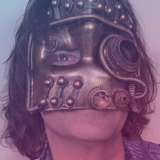

🖤Essential Crypto Dictionary🖤 🌐FUD Fear, uncertainty, and ..
Added 2022-06-24 12:06:49 +0000 UTC🖤Essential Crypto Dictionary🖤 🌐FUD Fear, uncertainty, and doubt. (FUD in cryptocurrency is a psychology trick used to spread doubt and fear which would cause that certain coin to drop in price.) - 🌐Shill Someone purposely promoting something for their own benefit. (Most likely, someone who has invested in a particular coin that isn’t doing so hot, and is hoping other people would buy it and bump the price up. It’s all for personal gains.) - 🌐FOMO Fear of missing out. (feeling an urgent need to get in on what everyone else is doing: buying a certain cryptocurrency when they think its price is about to hike!) - 🌐HODL Hold on to dear life (or “hold your coins” for a straightforward meaning). HODL means to hold onto a coin even if it’s crashing, hoping for a bullish market in the future. - 🌐Rekt To suffer huge losses from coins that have substantially dropped in value - 🌐Whale An investor who owns five percent or more of any cryptocurrency coin. (For instance, in the case of Bitcoin, a whale would be someone who owns as much as 8 billion USD worth of Bitcoin (assuming the total value of all Bitcoins in the world is 160.4 billion USD) - 🌐Pump and dump Pump happens when a great ton of attention leads to a coin’s price increase; dump happens when the coin’s price crashes after an associated spread of negative emotions. An influencer can pump and dump on a small cap coin simply by buying, hyping and selling. - 🌐Bagholder Someone holding onto a coin that has plummeted in price. - 🌐Staking Crypto staking is the process of locking up crypto holdings in order to obtain rewards or earn interest. - 🌐Block Groups of data within a blockchain. On cryptocurrency blockchains, blocks are made up of transaction records as users buy or sell coins. Each block can hold only a certain amount of information. Once it reaches that limit, a new block is formed to continue the chain. 🌐Blockchain Blockchain is a system of recording information in a way that makes it difficult or impossible to change, hack, or cheat the system. Blockchains continually grow as blocks are being added to the chain, which significantly adds to the security of the ledger. - 🌐NFT Non-fungible token. Meaning it’s unique/can’t be replaced w/ something else. For example, a bitcoin is fungible — trade one for another bitcoin, and you’ll have exactly the same thing. One-of-a-kind trading cards are non-fungible. You can trade, but you’d have a diff card. - 🌐Blue chip The term “blue chip” comes from a poker game in which the blue chips have the greatest value. Like Bitcoin and Ethereum, there are NFT “blue chips” that are expected to be around in five or ten years. 🌐Marker Cap Cryptocurrency market capitalization refers to the total value of all the coins that have been mined. You can calculate a crypto’s market cap by multiplying the current number of coins by the current value of the coins. - 🌐Gas Gas refers to the fee, or pricing value, required to successfully conduct a transaction or execute a contract on the Ethereum blockchain platform. - 🌐DeFi A movement encouraging alternatives to traditional, centralized forms of financial services. 🌐Smart Contract An algorithmic program that enacts the terms of a contract automatically based on its code. One of the main value propositions of the Ethereum network is its ability to execute smart contracts. - 🌐Moonshot When your coin goes parabolic and increases rapidly in price. - 🌐Fiat Fiat money is government-issued currency. Example, the U.S. dollar. Any ticket that as USD i.e USDT coin 🌐Stable Coin A stablecoin pegs its value to some other non-digital currency or commodity. A digital fiat represents a fiat, or government-backed currency on the blockchain. (Example: Tether, which is pegged to the U.S. dollar) 🌐ICO A way that funds are raised for a new cryptocurrency project. ICOs are similar to Initial Public Offerings (IPOs) of stocks. - 🌐Altcoin An altcoin is any digital currency that’s not Bitcoin. There are thousands of cryptocurrencies, with new ones being added all the time. - 🌐Wallet A cryptocurrency wallet is an app or physical storage device that allows you to store and retrieve your digital currency. Wallets can hold multiple cryptocurrencies, so you’re not limited to just Bitcoin. Wallets store the location of your currency on the blockchain. - 🌐Hot & Cold Wallet A hot wallet is connected to the internet. The most secure way to store your cryptocurrency is with a cold wallet — one that isn’t connected to the internet. - 🌐Mining Computers mine coins by solving complex math problems. The more powerful the computer, the faster it can "think." - 🌐Minting Minting is how a file, such as a JPEG or GIF, is recorded to a blockchain. After an NFT is minted, it can be sold or traded. - 🌐Decentralized The principle of distributing power away from a central point. Blockchains are traditionally decentralized because they require majority approval from all users to operate and make changes, rather than a central authority. - 🌐Fork When a blockchain’s users make changes to its rules. These changes to the protocol of a blockchain often result in two new paths — one that follows the old rules, and a new blockchain that splits off from the previous one. (Example: a fork of Bitcoin resulted in Bitcoin Cash). _

















































